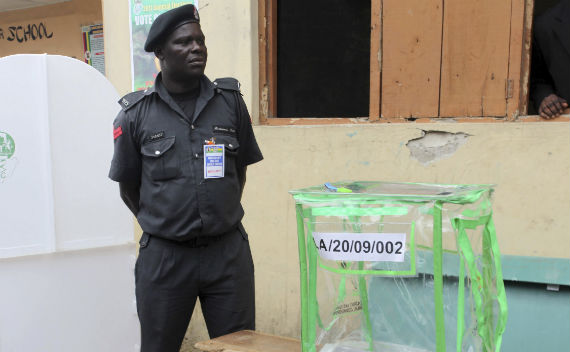Nigeria’s Committee on Post-Election Violence Reports to President Jonathan
More on:

The Presidential Committee on the 2011 Election Violence and Civil Disturbances presented its report to President Goodluck Jonathan on October 10. The President has promised to issue a white paper to implement the committee’s recommendations. Though numbers of press people have apparently seen the panel’s report, it is not clear to me whether it is public. I have not been able to find it online.
Sheikh Ahmed Lemu, a retired grand khadi (Islamic judge) led a panel of twenty-two charged with investigating the causes of the violence and to make recommendations as to how to prevent it in the future. The 2011 presidential elections were the bloodiest since the restoration of civilian government in 1999. Human rights organizations estimate at least a thousand were killed. Other observers suggest that the death total may have been higher.
Press reports state the committee identified root causes for the violence including: a strong desire for change and frustration at past regimes; bad governance; corruption; and a culture of impunity surrounding political, ethnic, and religious violence as well as inflammatory rhetoric. Press commentators are divided on whether the report fully exonerates opposition presidential candidate Muhammadu Buhari from charges that he failed to rein-in his supporters.
It is to be hoped that the committee’s report will be published and its recommendations implemented. However, the Nigerian government has usually failed to publish the reports of previous plans and commissions dealing with violence, and their recommendations have remained a dead letter. Indeed, according to the press, Lemu himself said that government failure to implement recommendations by previous committees and panels “facilitated the wide spread sense of impunity in the culprits and perpetrators of crimes and violence in the Nigerian society.”
More on:
 Online Store
Online Store